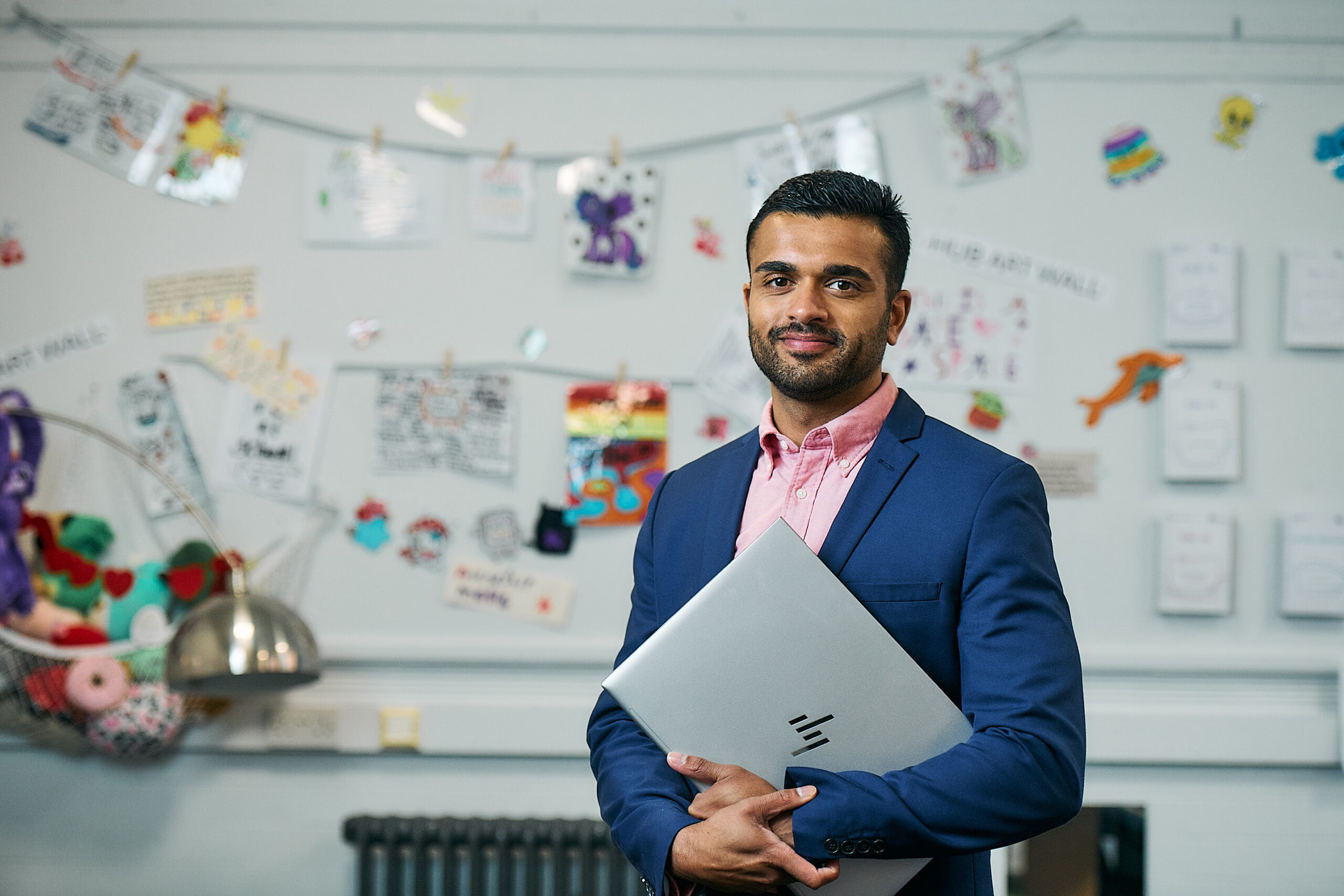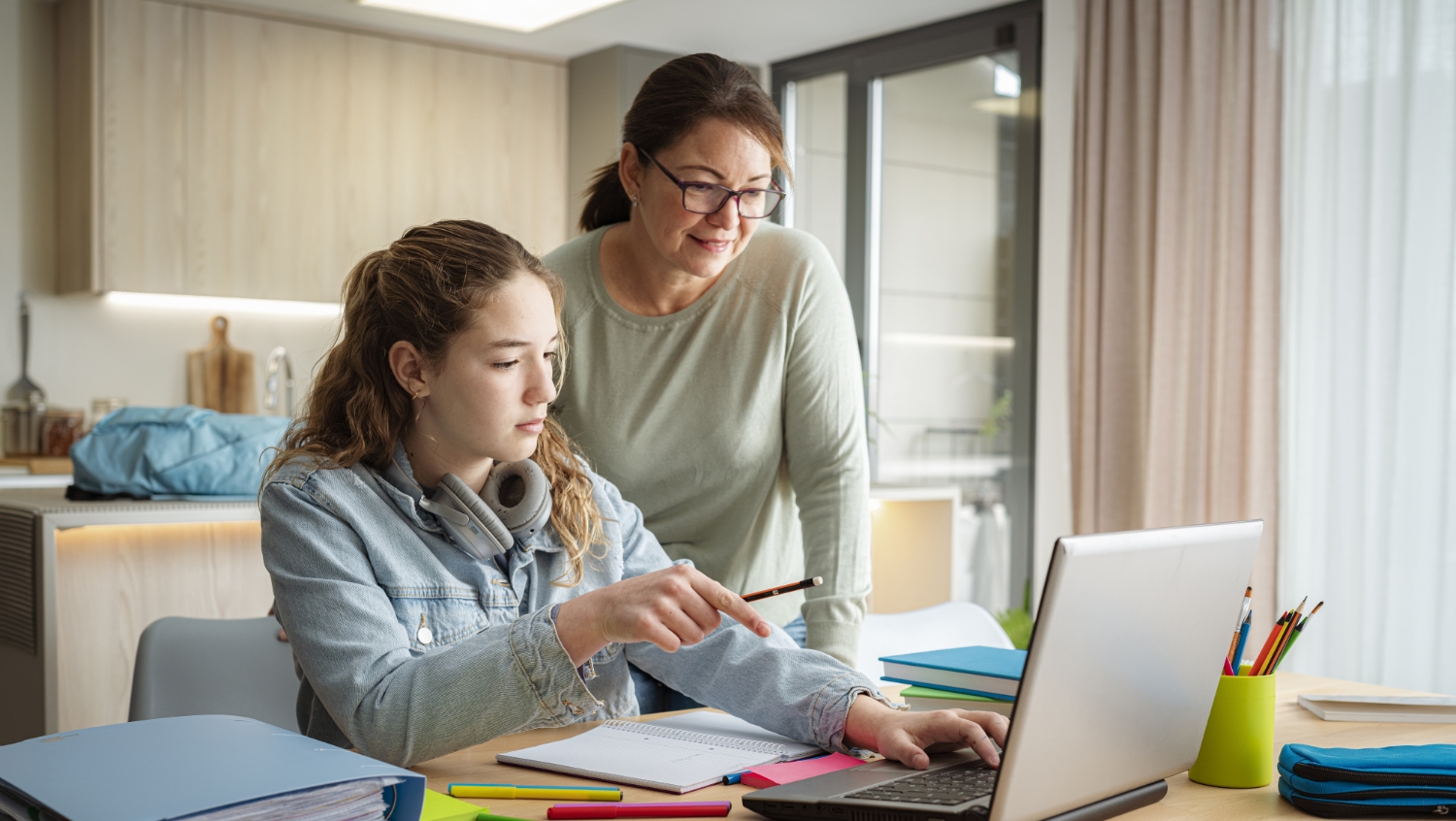Key stage 2, 3, 4 and 5
Wellbeing support courses
Empower young people to take control of their mental health, become self-advocates, and create a happier foundation for learning and life. Our range of short courses equip students with the skills they need to thrive in and beyond school.
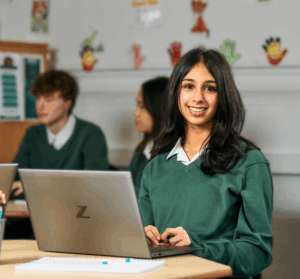
Our support options
We offer a range of different wellbeing support options. Each course has a distinct purpose and use case, but across all of our courses you can expect:
- Courses that equip students with lifelong skills, to succeed not just in school, but in all aspects of life.
- Experienced teachers and practitioners, trained to support SEN needs ensuring every lesson is tailored to the student’s unique needs.
- Lessons taught in real-time, enabling direct interaction with students and the opportunity for tailored support.
- Flexibility and accessibility. We offer flexibility so students can access courses at their own pace, with recorded lessons and online resources always available.
our support options
What we offer
Expand the headings below for an overview of each of our course types. All courses include:
- Experienced teachers with SEN expertise
- 100% live lessons, with recordings available
- Online platform with all resources
- Interactive quizzes and games
- Qualified educators and counsellors (for counselling courses)
- Flexible student enrolment options
Next steps: Reintegration and Wellbeing
At a glance:
- Course length: 38 week rolling programme
- Content: varied content – progression, transition, reintegration and wellbeing
- Availability: Key Stage 3 & Key Stage 4 Academy21 students
This comprehensive programme can be accessed by Academy21 students throughout their time with us, from as little as 1 week to year-round provision.
Our Next Steps: Reintegration & Wellbeing Programme is a bespoke series of live classes delivered on Fridays that are delivered by specialists and designed with Key Stage 3 and Key Stage 4 students in mind.
These sessions focus on supporting students to reintegrate successfully back into their ‘home’ school or setting or to transition onto another placement. Throughout these sessions, we unpack what it means to be resilient, independent and healthy, both mentally and physically.
We discuss reintegration and transition, and place great emphasis on the skills needed for the next phase of their lives, be that Key Stage 4 or careers for school leavers. All sessions are live, with teachers delivering directly to the students, answering questions and providing feedback via the chat. These sessions are also recorded and accessible to your students via their Student Portal, offering excellent flexibility in how you use them to complement the curriculum.
The course is delivered once per week, and topics are mapped out over the year. Students enrolled on this course will receive a carefully sequenced curriculum that focuses on the personal attributes associated with a young person’s wellbeing and development, and will also cover a range of current affairs and national awareness events.
This scheme of work is designed to support students in their reintegration into school life by fostering personal growth, emotional wellbeing, academic readiness, and social connection. It provides a structured yet flexible framework that helps students reflect on their experiences, set meaningful goals, and re-engage with learning in a positive and purposeful way.
Through topics such as transition and change, teenage brain development, and resilience, students are encouraged to understand themselves better and develop strategies for managing emotions and behaviours. Units on routine building, study skills, and GCSE choices help re-establish academic focus and confidence.
The curriculum also promotes social awareness and inclusion through celebrations like Black History Month, Pride, and International Women’s Day, while addressing key issues such as bullying, mental health, and online safety. Global themes like climate change, human rights, and ethical consumption encourage students to reconnect with the wider world and take responsibility for their actions.
Overall, this programme offers a holistic approach to reintegration, helping students rebuild their identity, reconnect with their peers and learning environment, and move forward with confidence and purpose.
Reporting and Monitoring: student progress, attendance and engagement scores are available within the mentor portal as standard.
Enhanced Support Courses
At a glance:
- Course length: 10 week programme
- Content: practitioner-led, focussed content tailored to student need with small groups up to 10 students depending on subject
- Availability: KS2-5, King’s InterHigh and Academy21 Students, or stand-alone enrolment
Our enhanced support courses are specifically designed for students who may need additional help around a specific challenge. They are available for Key Stage 2, 3, 4, and 5, and cover topics like anxiety, resilience, and online safety, bringing students a toolkit for navigating challenges and improving their wellbeing.
Our teachers and practitioners are fully qualified and experienced in teaching students with additional needs, so they can deliver personalised support to meet students’ unique requirements. Class sizes are smaller than in our standard provision; up to 10 students in social skills and anxiety management classes; up to 3 students in wellbeing mentoring; and, one-to-one in counselling sessions.
These courses are bookable in blocks of 10 academic weeks as standard but course length can be varied, please speak to your partnership manager for details. Each weekly 40-minute lesson can be scheduled flexibly within the school day.
The curriculum design of these courses is such that students requiring longer-term support, can attend for more than 10 weeks without repeating the same content.
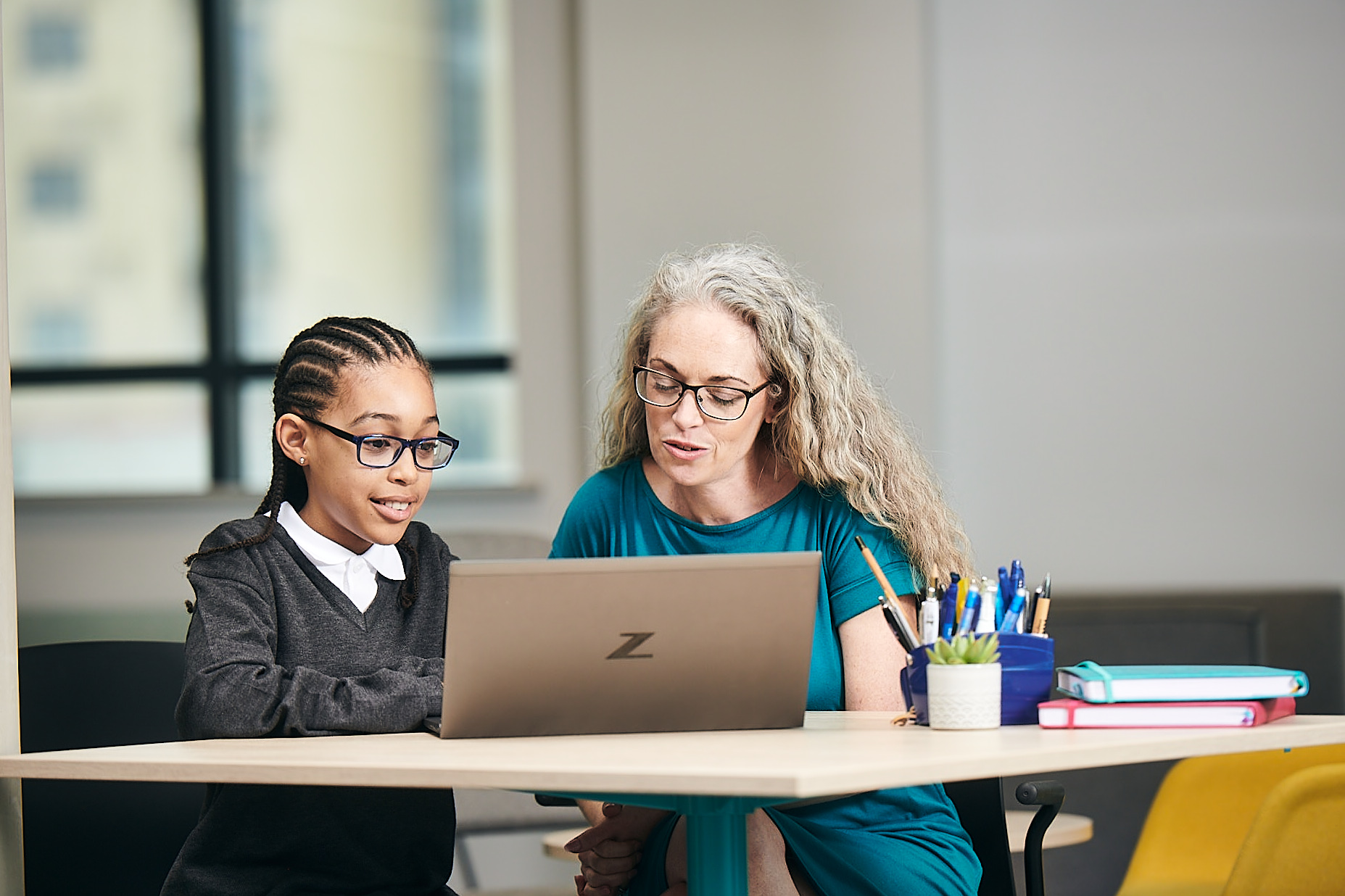


course content
Key themes and topics covered in Next Steps: Reintegration and Wellbeing
Personal Goals and School Environment
Encouraging students to set personal goals, fostering a sense of direction, and supporting reintegration by promoting a sense of belonging.
Self-Awareness and Emotional Regulation
Helping students understand their emotions and behaviours, equipping them with strategies for managing mental health challenges effectively.
Empathy and Inclusivity
Fostering acceptance and understanding of neurodiversity, creating a more inclusive school environment.
Environmental Responsibility
Promoting a sense of responsibility towards the environment and global community, enhancing students’ self-awareness and social responsibility.
Career Planning and Aspirations
Empowering students to take ownership of their career plans, supporting them in preparing for their next steps, ,from GCSE choices to career pathways.
Positive Mindset and Perseverance
Developing resilience and perseverance in the face of challenges, encouraging a growth mindset.
Diversity and Equality
Encouraging the appreciation of diversity and the promotion of equality, empowering students to advocate for human rights and social justice.
Respectful Dialogue and Critical Thinking
Supporting students to engage in constructive debates, understand democratic processes, and develop critical thinking skills.
Digital Wellbeing
Encouraging healthy relationships with digital media, promoting self-image and wellbeing in an online world.
Course content
Enhanced Support Courses
Anxiety Management
Our Anxiety Management course provides students with a greater understanding of anxiety and how it functions in our brain and body. It also equips students with various anxiety management techniques, including mindfulness-based approaches; grounding exercises; breathing exercises; guided meditations; and art-based activities.
Our expert teachers provide a safe space for students to grow in confidence and work closely with students to identify negative thought patterns and develop a more positive mindset.
This course is recommended for students who need support for moderate anxiety issues or those facing challenges due to emotionally based school non-attendance.

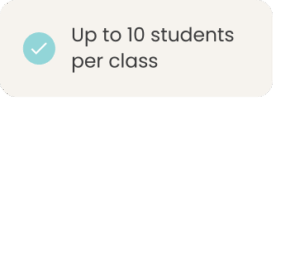
Social Skills
The Social Skills course supports students with their social interactions, understanding of social rules, and verbal and non-verbal communication.
The sessions include: an emotional check-in; games, puzzles, and activities; a time for pupils to discuss topics of interest; share their thoughts on different topics and time to reflect on challenges that individuals can face in social situations. Key areas of focus are speaking and listening, turn taking and teamwork, winning and losing, and developing empathy.
This course is recommended for students who find peer interaction challenging, including students with communication and interaction needs.
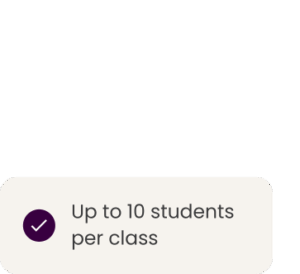
Wellbeing Mentoring
The Wellbeing Mentoring consists of 10 sessions, taught over a 5-week period. Sessions will be taught alternately between five one-to-one sessions and five focus-groups of up to three students.
The sessions will initially focus on identifying wellbeing challenges. Then, a skilled inclusion practitioner will work with the student to implement a plan to manage their wellbeing, build healthy routines, and help them grow the confidence to thrive in their learning.
Mentors will review their students’ plans regularly and provide updates to partner schools or commissioning services.
This course is ideal for students who need help organising and managing a healthy routine to underpin their learning with us and to thrive in life more broadly.
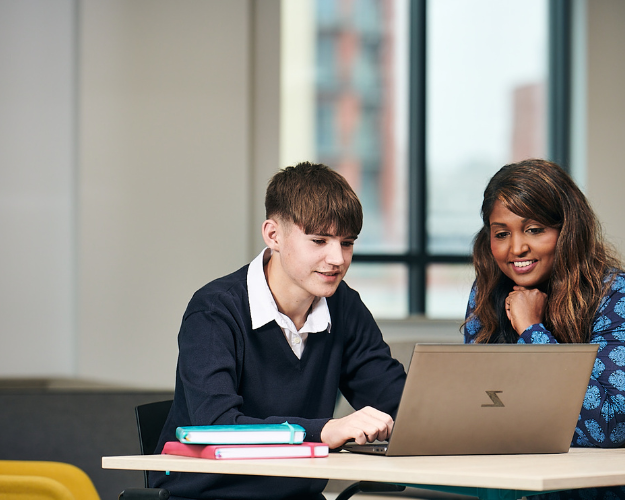
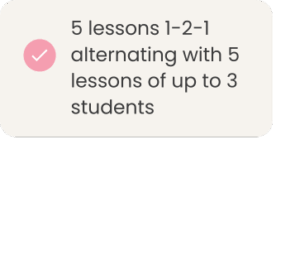
One-to-one Counselling
Led by our fully qualified School Counsellor, counselling sessions provide more intensive, personalised support for students with wellbeing needs. Sessions are available to book in blocks of ten or five sessions.
For younger students, creative and play therapies are used to process thoughts and feelings. For older students, Cognitive Behavioural
Therapy (CBT) will be used, which is particularly helpful for issues such as phobias and anxiety. We can also provide person-centred therapy, which allows young people to make sense of their thoughts, feelings and experiences at their own pace.
School mentors can request an initial free consultation call to discuss any challenges and concerns with the School Counsellor.

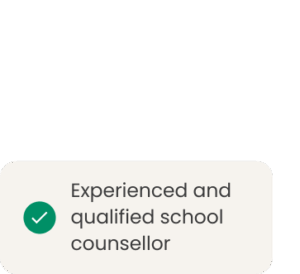
Reporting and Monitoring
There are regular formative tasks to help students consolidate their learning and two graded assessments to understand student performance. These take place in week 3 and week 7 of the course and are published in week 5 and week 9 respectively.
The student’s school or LA receives a personalised report at the end of each course cycle (Week 10), so they can understand how the student has progressed.
The report includes further details of course content, an outline of the content that will be covered in the following term, and details of students’ strengths and areas for improvement.
